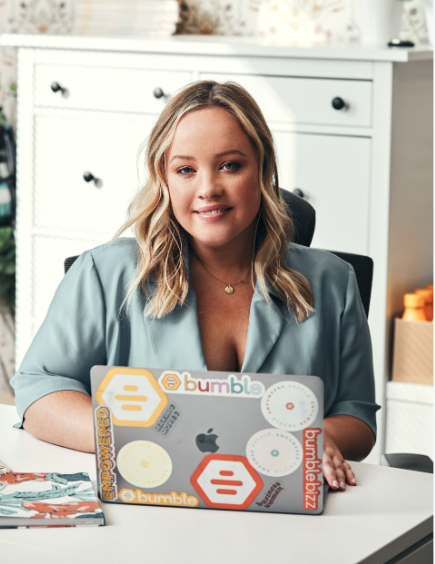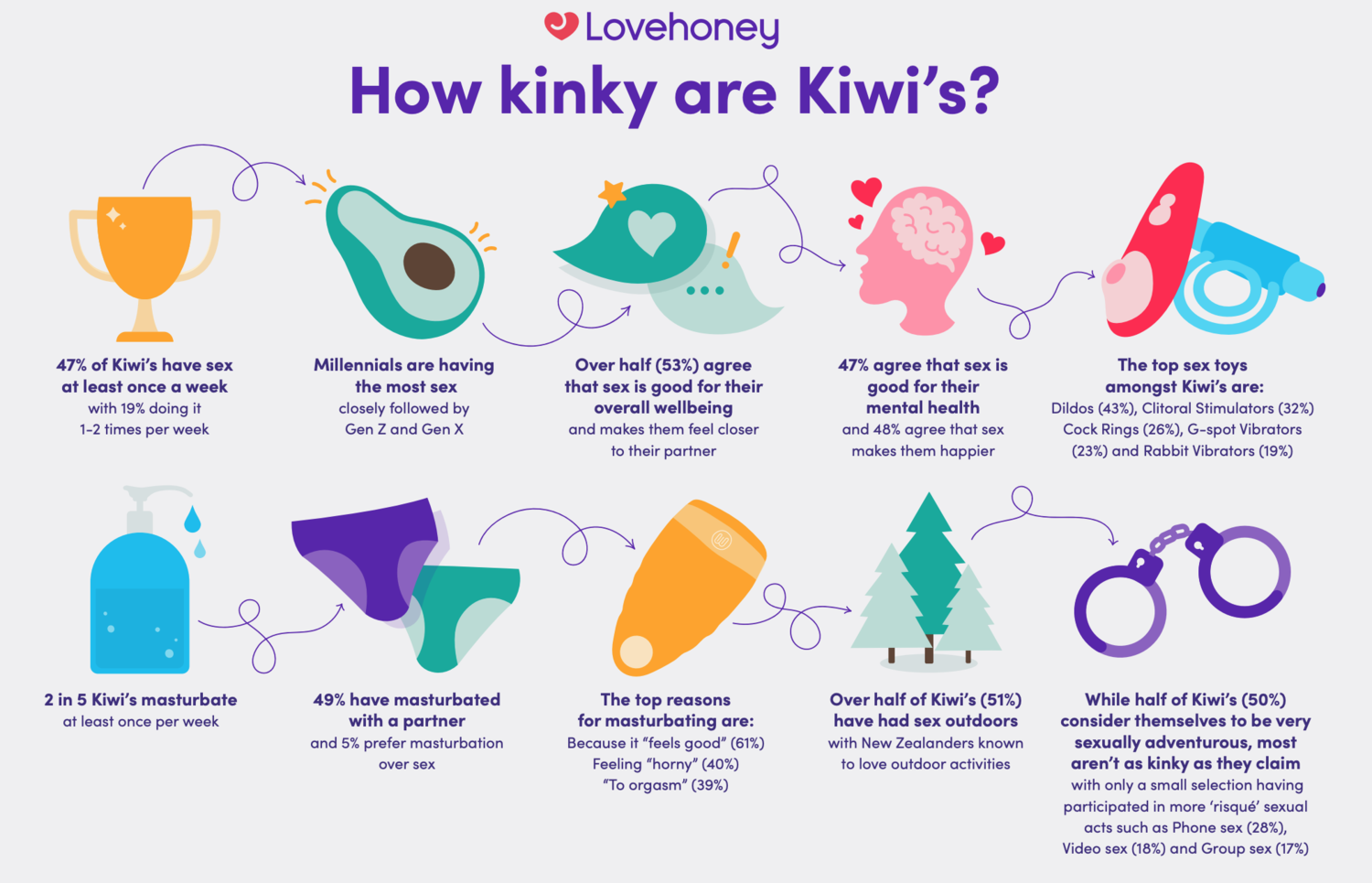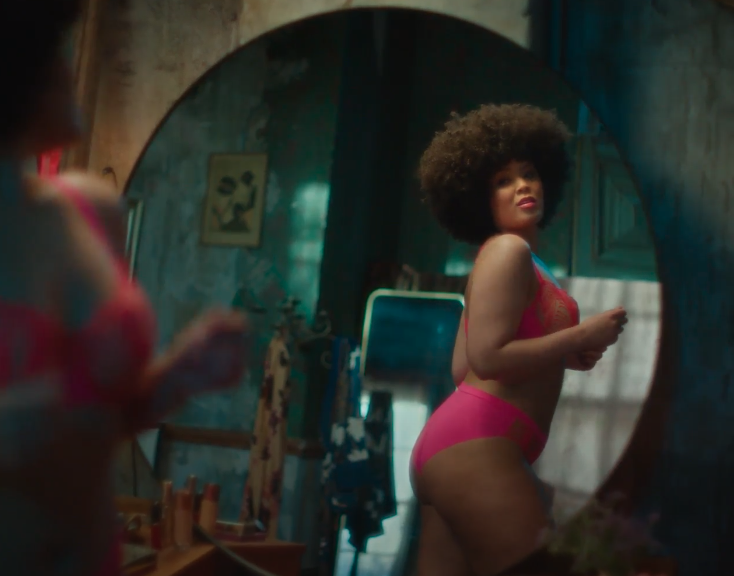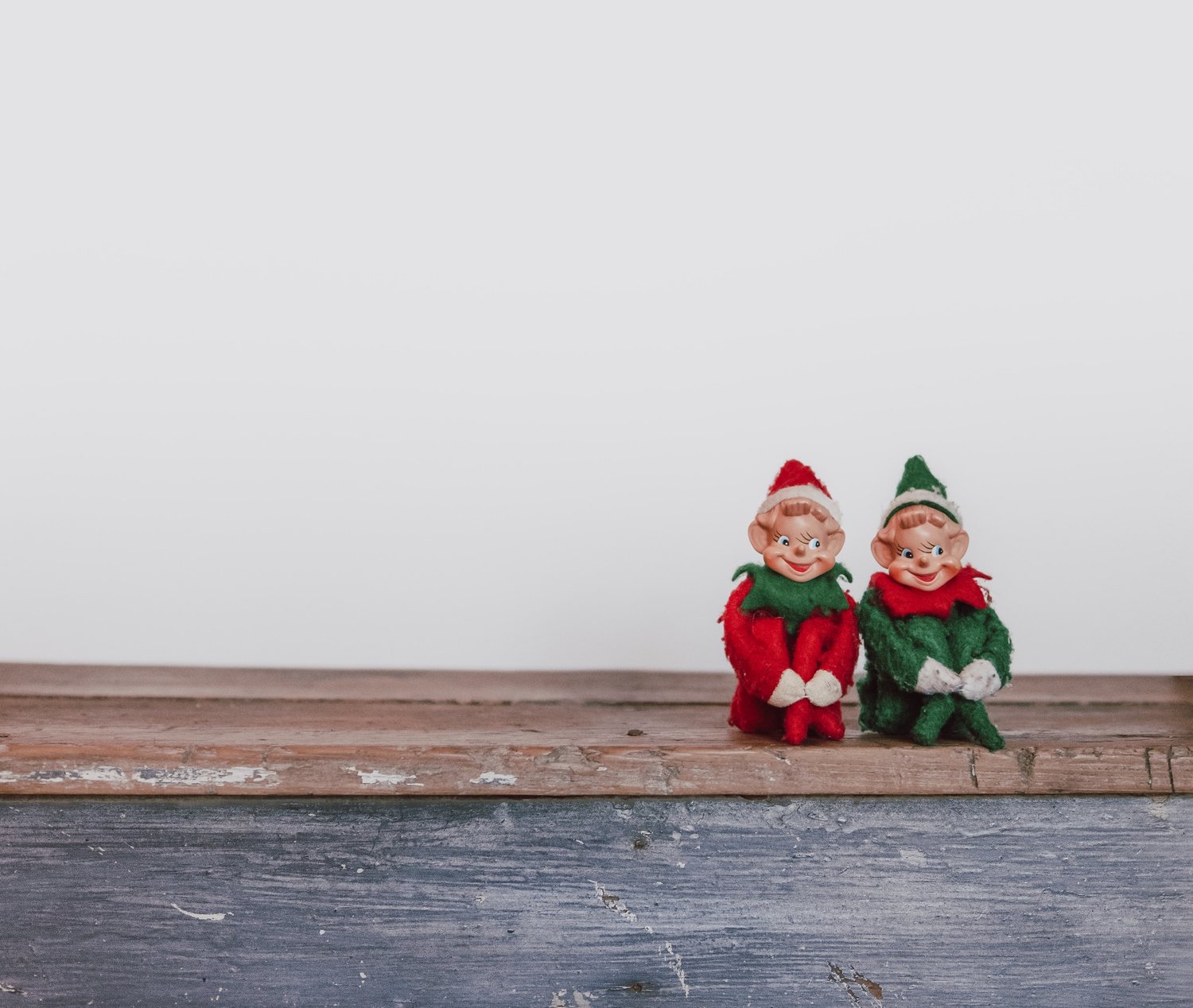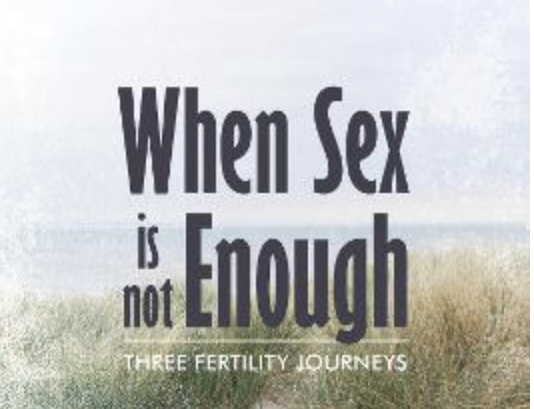
Inside ‘When Sex Is Not Enough’: Three women’s experiences with infertility
‘When Sex is Not Enough’ is a truly personal look inside three women’s different battles with infertility. New Zealanders, Melissa Hori, Stephanie Larnder and Simone Fernandes, share their raw and unfiltered experiences across cervical cancer, endometriosis, a hysterectomy, IVF, surrogacy, and adoption, all from a first person narrative that will both shock and move you.
Apart from revealing accounts of their deeply personal struggles, the authors also impart their wisdom through lived experience, to the many women and men who struggle daily with fertility. “Infertility is so common and yet we still feel alone in it. It affects every part of your life,” says Melissa.
Overall, the purpose of this book was to help others in whatever way they may need help. Whether it be with advice, or bringing comfort to someone with a similar journey, we just want to help!” says Stephanie.
Not only is this book for couples who are struggling with fertility, but it also offers advice to those who might know someone battling through fertility.
We think it’s important for everyone to know how they can support someone they may know who’s going through fertility struggles, and gentle ways they could approach the topic to let their loved one know that it’s safe to talk about it,” says Simone.
To give you a feel of this ‘must-read’ here is a harrowing excerpt from Stephanie Larnder.
Excerpt by, StephanieStephanie Larnder.
“I was 24 years old when I had a full hysterectomy. My life up to that point had been far from traditional. Exposure to drugs, alcohol and violence led me into premature adulthood, so I guess when this all came about it was just another thing to add to the list of crazy shit. I had to deal with.
I had been through so much already, surely this wasn’t going to break me, right? Or so my 24-year-old self thought. In August 2014, I was at my smallest, weighing 47kgs and I looked like a healthy, happy woman. Inside I was physically and mentally unwell. Obsessed with external beauty and utterly confused about who I was, I consistently changed jobs or changed my car, never questioning why I felt the need to keep doing so. (This part of my life I compartmentalise in my mind as ‘confusion’. It is a story in itself – for another day.)
It was a Tuesday morning, and I was at an early morning gym session with my sister-in-law, as was my usual routine at the time. My stomach had been bloated over the past few weeks and was tender to touch, making doing sit-ups near impossible. Throughout that day I couldn’t eat, but I hadn’t been eating much over the previous few months, so it wasn’t worrying me. By the time I got home that night, my stomach resembled a watermelon. Out of sheer panic that I was gaining weight I booked an appointment with my GP for the following day.
“It looks like you’re about 12-weeks pregnant’ were the first words out of his mouth. (At that time this wasn’t a touchy subject.)
I politely replied that I had already done a test and it was negative. He did some pushing and prodding of my belly and then left the room and returned with an ultrasound machine. (To put this into context, for many years I had been complaining of chronic period pain, excessive menstrual cycles, pain during sex and going to the toilet. I had even felt marble-sized lumps in my abdomen, and my GP had never before wheeled in an ultrasound machine for a more thorough look. This moment is integral to what would become my ongoing disappointment in the health system.)
For a dark-skinned guy, he turned pretty white when he saw what appeared on the ultrasound screen. He typed for a few moments and then handed me a script to take to a local A&E for further scans. I did as I was told. At A&E, I received the same pale-faced reaction from the radiographer, particularly when she could barely do the internal examination.
I don’t think I really allowed myself to take in what was going on. I had recently started a new job and I didn’t want to take time off. I rang my mum and husband and lied to them both about the seriousness of my diagnosis, which allowed me a few more days to finish prepping for a conference the following week. At last, on Friday, I admitted that I needed them to come with me to the hospital for a ‘small operation’, naively thinking I could be back at work on Monday.
When we arrived at the hospital that Friday night, the emergency room was packed. I handed over the paperwork and scans and it wasn’t long before I was getting looks of shock from the nurses who had read my medical files. I started to realise how silly I’d been not to have come in earlier. Within a few hours, I had signed waivers for the removal of any other organs affected, drips were in, gown on and I was wheeled into surgery for the removal of a 20cm cyst.
I had thought the surgery would be quick – slice my stomach open and there it is – but unfortunately it was not. It took eight hours and a large surgical team to complete the removal. They were able to remove the largest cyst without removing the ovary it was attached to, but after such a long procedure they ran out of time to remove the smaller cysts. I had a complicated medical history.
I’d been a three-month prem baby born with gangrene throughout my intestines resulting in temporary ileostomies, scar tissue from multiple surgeries, a history of open heart surgery and scoliosis of the spine, and now with endometriosis raging in full force. I can just imagine the conversation between surgeons as they examined me – the poor bastards probably wanted a cold beer on their Friday night, and instead they got me!
The experience of that surgery grounded me. I slowed down my hectic lifestyle of partying all weekend. My husband and I purchased our first home a few months later and we had to grow up even further. I healed fast and was eager to get back to work. My boss had been incredibly understanding but I’m not one to sit still for long. I needed to get moving. Endometriosis is classed as a disease so ACC wouldn’t cover my time away from work and WINZ offered me less than $5 a week. In New Zealand, having kids will get you an income but the threat of never having any gets you fuck-all.
Not long after I returned to work, I arranged a follow up appointment with a gynaecologist during my lunch break. Little did I know, that would be the start of a very difficult road. I don’t exactly remember the drive home after the appointment. I know I was hysterical. The gynaecologist had explained some hard truths to me, based on my last set of scans. The endometriosis was spreading furiously. I had hydrosalpinx (fluid in the fallopian tubes), rectovaginal endometriosis (endometrial tissue between vagina and rectum), I had grown another cyst on the same ovary the large one had been removed from, and I still had the existing cysts they hadn’t been able to remove during the first operation. In New Zealand, having kids will get you an income but the threat of never having any gets you fuck-all.
Lots of women have different levels of endometriosis and in most cases these women endure many keyhole operations to remove it. However, in my case and with my medical history, keyhole surgery was not possible and more extensive operations would be life threatening. Since I was a little girl, my mum had been telling me that although my ‘girl parts’ worked, we couldn’t be sure my body would withstand pregnancy. This opinion was shared by my gynaecologist.
As I spluttered out the news to Matt at home, my poor husband was in as much shock as I was. He listened intently and wiped the tears from my eyes, before lifting my head from his chest and softly saying, ‘There is no point in life without you in it. Let’s get the hysterectomy.’ The next few months were the worst. One day I would be on board with the decision, convinced that this had to be done to ensure my life; other days I would argue that I could continue with surgeries and keep fighting this disease. Back and forth, arguments, frustration, tears and pain (both physical and mental) led to me walking out a few times – not because I wanted to, but because Matt didn’t deserve any of this. Since I was a little girl, my mum had been telling me that although my ‘girl parts’ worked, we couldn’t be sure my body would withstand pregnancy. This opinion was shared by my gynaecologist.
He wasn’t broken, I was! And none of this was fair on him. Every time I left, I came back because I was selfish and I couldn’t live without him. I couldn’t do life without this man. I had spent nearly every waking moment with him since I was 14 years old. He assured me he felt the same – ‘If it’s you or babies, I will pick you every time.’ On 20 April 2015, I had a full hysterectomy, removing my uterus, fallopian tubes, cervix and ovaries. This time I was prepared. I understood the recovery time. I knew the surgery would take 8—10 hours and I knew what the end result would look like. This time I felt more in control, and being the control freak/over-organiser I am, that helped me mentally get through the first few days. I had close friends and family visit me in hospital and messages of support through social media read aloud which meant the world to me. The next few months were the worst. One day I would be on board with the decision, convinced that this had to be done to ensure my life; other days I would argue that I could continue with surgeries and keep fighting this disease. Back and forth, arguments, frustration, tears and pain (both physical and mental) led to me walking out a few times – not because I wanted to, but because Matt didn’t deserve any of this. Since I was a little girl, my mum had been telling me that although my ‘girl parts’ worked, we couldn’t be sure my body would withstand pregnancy. This opinion was shared by my gynaecologist.
Tears of gratitude streamed down my face regularly, hiding my tears of sadness. My sister Alexis flew over from Perth to look after me. She knew I wasn’t going to stay still at home without supervision. Matt had to go back to work – the mortgage wasn’t going to pay itself and getting assistance from WINZ or ACC wasn’t any better this time around. I returned from hospital to find a new heat pump had been installed in the lounge. We had put up with a cold winter the year before and had talked about getting one installed, but my sister bet us to it and wouldn’t let us repay her. I was cooked for, showered, and cared for in a warm home by my sister who had flown all that way. I couldn’t help but realise how incredibly lucky Matt and I were, with her, and our families and friends supporting us emotionally.
On 20 April 2015, I had a full hysterectomy, removing my uterus, fallopian tubes, cervix and ovaries. This time I was prepared. I understood the recovery time. I knew the surgery would take 8—10 hours and I knew what the end result would look like. This time I felt more in control, and being the control freak/over-organiser I am, that helped me mentally get through the first few days. I had close friends and family visit me in hospital and messages of support through social media read aloud which meant the world to me. The next few months were the worst. One day I would be on board with the decision, convinced that this had to be done to ensure my life; other days I would argue that I could continue with surgeries and keep fighting this disease. Back and forth, arguments, frustration, tears and pain (both physical and mental) led to me walking out a few times – not because I wanted to, but because Matt didn’t deserve any of this. Since I was a little girl, my mum had been telling me that although my ‘girl parts’ worked, we couldn’t be sure my body would withstand pregnancy. This opinion was shared by my gynaecologist.
When I look back at those first few weeks of my recovery, all I feel is gratitude and love. It has been proven that your body biometrically cannot experience gratitude at the same time as stress (and I believe the same of any negative emotion), so next time you are overwhelmed, stressed, anxious, angry, or sad, practice gratitude and see the difference for yourself. Although not always easy to do, it’s worth the practice and will pay dividends to your soul. It’s literally life-changing.”
To read more about about Steph’s story and the other two women experiencing the highs and lows of their very unique fertility journeys, you can read the incredible tales within ‘When Sex is Not Enough’.
Related Posts
New study shows direct link between sleep and mental health
How sleep has a direct connection to our mental health
Dating in 2020: Bumble’s NZ Country Head talks Kiwi love in Lockdown
How lockdown effected our ability to get lucky
Toys, Kinks, Health & Wellness: New study shows Kiwis are clued up and turned on
Kiwis are showing their skills when it comes to Sexual Wellness
International Men’s Day: Signs Your Friend Could Be Struggling
Today is International Men’s Day, a day set to celebrate men around the world and raise awareness of men’s health and mental wellbeing. Suicide still remains the biggest single killer of men under 45, and males are three times more likely to comm
Libra encourages liberation from period stigma
Libra tackles period stigma in latest advertisement
7 ways to look after your mental health this Christmas
Christmas can certainly be a difficult time, with 26% of people experiencing poor mental health during the festive season.



